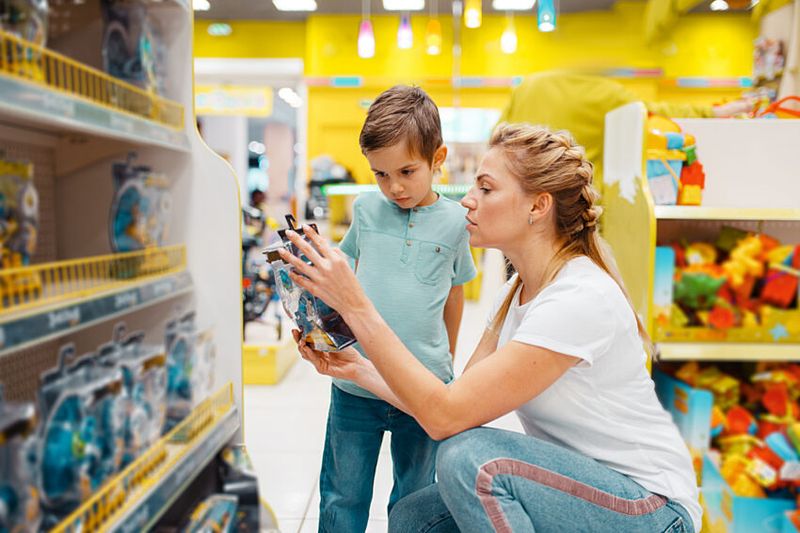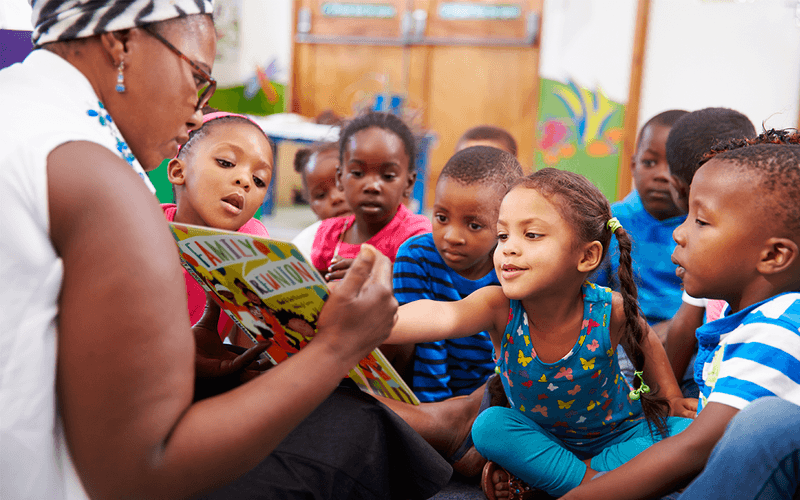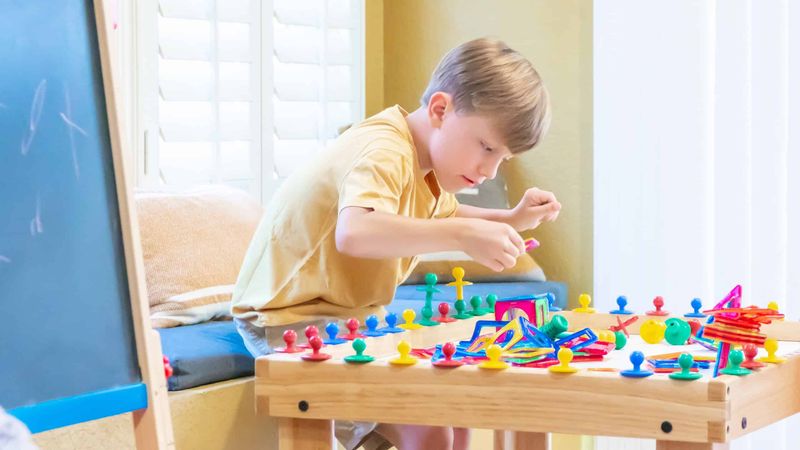12 Parenting Trends Experts Say Are Fading — and 11 They Recommend Keeping

Parenting is constantly evolving, shaped by new research, cultural shifts, and a heavy dose of social media influence. While many recent trends aim to support emotional intelligence, inclusivity, and balance, others seem to miss the mark—or even create new challenges for kids and parents alike.
1. Gentle Parenting to the Point of No Boundaries

Gentle parenting started with noble intentions, focusing on empathy and understanding. However, when taken to extremes, it often leads to a lack of structure. Children need boundaries to feel secure and understand their world.
Without them, chaos can ensue, leaving kids without a clear sense of what’s right or wrong. While kindness and empathy are crucial, discipline should be balanced to ensure that children learn consequences.
A world without rules might sound utopian, but it’s not practical for young minds trying to navigate the complexities of growing up.
2. Over-Documenting Kids on Social Media

Privacy concerns grow as parents share every aspect of their child’s life online. Digital footprints are created long before kids can give consent, potentially impacting them in unforeseen ways.
What seems like a harmless post today may become a source of embarrassment or even bullying in the future. While sharing milestones is tempting, it’s crucial to balance public displays with private moments.
Parents must consider the long-term implications of oversharing and prioritize their child’s right to privacy in the digital age.
3. Over-Scheduling and Hustle Parenting

The urge to provide every opportunity leaves little room for free play. Kids today often have schedules that rival CEOs, filled with extracurriculars and academic demands.
While exposure to diverse activities is beneficial, time for imagination and rest is equally vital. Overscheduling can lead to burnout and stifle creativity.
Parents should strive to balance structured activities with downtime, allowing children to explore their interests at their own pace and develop lifelong passions.
4. Helicopter Parenting

Constant hovering may protect kids from immediate harm, but it also deprives them of independence. Children need space to explore, make mistakes, and learn from them.
Helicopter parenting can undermine a child’s confidence and problem-solving skills, leaving them unprepared for adulthood.
By stepping back, parents can encourage autonomy and resilience, allowing kids to grow into capable, self-sufficient individuals.
5. Screen Time as a Babysitter

Relying on devices for quiet time can lead to stunted emotional development. While digital tools offer educational benefits, overuse can impact attention spans and social skills.
It’s essential for children to engage in face-to-face interactions and physical play. Parents should set limits on screen time and encourage activities that foster creativity and connection.
Balancing digital exposure with real-world experiences is key to nurturing well-rounded individuals.
6. Perfect Instagram Mom Syndrome

The pressure to portray a perfect life online can be overwhelming. While aesthetically pleasing feeds are attractive, they often set unrealistic standards.
Comparison can lead to feelings of inadequacy and stress for parents striving to keep up. Authenticity is more relatable and meaningful.
Embracing imperfections and shared struggles fosters a supportive community, reminding us that parenting is a journey with highs and lows.
7. Rewarding Everything With Treats or Toys

Constant external rewards can undermine intrinsic motivation. While positive reinforcement is essential, over-reliance on treats can create entitlement and diminish resilience.
Children should learn to appreciate achievements and efforts without expecting material rewards.
Encouraging intrinsic values and a love for learning fosters long-term success and contentment, providing a foundation for a balanced life.
8. DIY Medical Advice from TikTok or Mom Groups

Relying on social media for medical advice can be risky. While community support is valuable, replacing expert guidance with trends may lead to misinformation.
Parents should prioritize professional consultation for health concerns, ensuring accurate diagnosis and treatment.
Online platforms can supplement but never replace expert advice, especially when it comes to children’s health and well-being.
9. Enforcing Milestones Too Rigidly

Children develop at their own pace, and rigid milestone enforcement can create unnecessary anxiety. While developmental guidelines are helpful, they shouldn’t overshadow a child’s individuality.
Obsessing over checklists can strain parent-child relationships, leading to undue pressure.
Celebrating unique progress and fostering a supportive environment allows children to thrive naturally, without the confines of strict schedules.
10. Talking To Children on Social Media Instead of With Them

Addressing children through social media rather than directly can be harmful. Public shaming or open letters might seem cathartic but often damage trust and respect.
Conversations should be personal and private, fostering open communication and understanding.
Building a strong relationship involves direct dialogue, allowing children to express themselves freely without fear of public scrutiny.
11. Using ‘Adultification’ Aesthetics

Dressing young children like adults can blur healthy boundaries between childhood and adulthood. While fashion is a form of expression, imposing adult aesthetics may rush a child through their formative years.
Children should be allowed to embrace age-appropriate styles, nurturing their innocence and imagination.
Encouraging playful and creative expression through clothing supports a joyful, uncomplicated childhood.
12. Treating Kids Like Mini-Therapists

While emotional openness is valuable, relying on children for emotional support can be damaging. Kids need guidance and reassurance, not the burden of adult emotional complexities.
Parents should seek appropriate outlets for their stress, maintaining a nurturing environment for their children.
Encouraging emotional intelligence is crucial, but boundaries between adult and child roles must be respected to ensure healthy development.
13. Emotional Intelligence and Validation

Teaching children to navigate their emotions is a lifelong gift. With emotional intelligence, kids learn to express themselves clearly and handle conflicts with grace.
Validating feelings fosters trust and openness, allowing children to develop secure relationships.
By encouraging emotional literacy, parents equip their children to navigate the complexities of life with confidence and empathy, ensuring they grow into well-rounded individuals.
14. Respecting Kids’ Autonomy and Consent

Teaching children about autonomy and consent from an early age lays the foundation for healthy relationships. Simple practices, like asking before hugging, empower kids to set and respect boundaries.
Understanding consent fosters a sense of control and self-respect, leading to confident decision-making.
Parents who prioritize these lessons contribute to a society that values and respects individual autonomy and personal space.
15. Mindful Parenting

Mindful parenting emphasizes presence and intention rather than reactivity. By being attentive, parents create a nurturing environment where children feel valued and understood.
Mindfulness in parenting promotes emotional regulation and strengthens parent-child bonds.
Through intentional engagement, families can foster deeper connections and a sense of calm, even amidst the chaos of everyday life.
16. Prioritizing Mental Health Early On

Normalizing mental health discussions from a young age fosters resilience and self-awareness. Encouraging emotional check-ins and therapy equips children with tools to handle life’s challenges.
By prioritizing mental well-being, parents help their kids understand the importance of self-care and seeking help when needed.
Raising emotionally healthy individuals contributes to a society that values mental health and empathy.
17. Age-Appropriate Honesty

Being truthful with children, in a way they can comprehend, builds trust and security. Age-appropriate honesty empowers kids to face reality with courage and clarity.
It strengthens family bonds and nurtures a culture of openness.
By communicating honestly, parents prepare their children for the complexities of life while maintaining their innocence and curiosity.
18. Emphasis on Quality Time Over Quantity of Stuff

In a world full of distractions, prioritizing time together fosters meaningful connections. Sharing experiences over acquiring possessions strengthens family bonds and creates lasting memories.
Quality time emphasizes presence and engagement, offering children a sense of belonging and love.
This approach nurtures contentment and happiness, teaching children to value relationships and experiences over material wealth.
19. Teaching Digital Literacy Early

In an increasingly digital world, understanding media critically is essential. Teaching digital literacy equips children to navigate the internet safely and responsibly.
They learn to discern credible sources and protect their privacy, skills crucial for modern life.
By instilling these values early, parents prepare their children to engage with technology in a healthy and informed manner.
20. Inclusive and Diverse Representation in Books and Media

Seeing themselves and others represented in stories fosters empathy and self-worth. Inclusive media broadens perspectives, allowing children to appreciate diversity.
By providing access to varied narratives, parents help cultivate open-minded, compassionate individuals.
This trend promotes a society where everyone feels seen and valued, paving the way for greater understanding and harmony.
21. Encouraging Independent Play

Independent play offers children the freedom to explore and imagine without constraints. It nurtures creativity and problem-solving, vital skills in a stimulating world.
As children learn to entertain themselves, they build confidence and resilience.
Parents can support this by providing a safe space and time for children to indulge in unstructured play, fostering a lifelong love for exploration and learning.
22. Letting Kids Be Bored Sometimes

Boredom is a gateway to creativity and innovation. Without constant stimulation, children learn to entertain themselves and think critically.
Daydreaming and introspection foster curiosity and imaginative thinking.
By allowing children the space to feel bored, parents encourage problem-solving and self-discovery, skills that are invaluable throughout life.
23. Sustainable and Minimalist Parenting

Choosing quality over quantity and teaching children about sustainability benefits both families and the planet. Minimalist parenting focuses on mindful consumption and environmental responsibility.
By instilling these values, parents raise conscientious individuals who appreciate simplicity and conservation.
This approach fosters a sense of stewardship for the earth, ensuring that future generations inherit a healthy planet.

Comments
Loading…